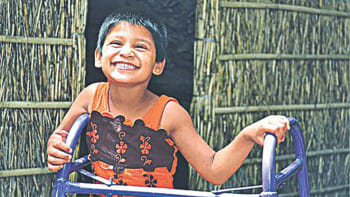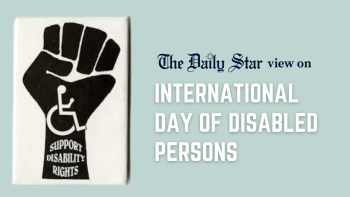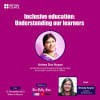We need a neuro-inclusive world for all

On the occasion of the World Autism Awareness Day, we join the call for building a neuro-inclusive world in which people with autism are recognised and celebrated for their diverse contributions to our collective progress. In a statement issued on Sunday, the UN secretary general has rightly emphasised the need for greater support for those with autism to fully reach their potential, as they continue to face social and environmental barriers to the full exercise of their rights and fundamental freedoms. He also stressed the need to promote inclusive education, equal employment opportunities, self-determination and an environment where every person is respected.
These demands apply particularly to Bangladesh, where the authorities are yet to develop a practical understanding of how to integrate neurodivergence into public life as well as policies governing education, employment and other basic rights. This year, the Ministry of Social Welfare has celebrated the autism day with special programmes and arrangements for blue lighting at the buildings of various government agencies and departments as well as Bangladeshi embassies and missions abroad. It also reportedly conferred special honour to ten individuals and three organisations in five categories for their contributions. The flurry of activity on the government's part suggests growing policy attention to autism. But progress achieved in terms of building mass awareness and supportive infrastructure for autistic children and adults has been painfully slow.
In terms of education, for example, autistic children still suffer from lack of access and inclusion. As per a report by Prothom Alo, the specialised educational institutions authorised by the ministry and those awaiting its authorisation are suffering from various problems, including lack of funding support and conducive learning environment. Under the ministry, there are 74 MPO-listed specialised educational institutions and 57 authorised but non-MPO ones. Apart from them, there are over a thousand others that are yet to be officially recognised. The government says that necessary support is provided upon authorisation and MPO inclusion, but the process of verification and background clearance is vital to ensure public resources are not wasted. Reportedly, more than 100 teachers of the 74 MPO schools haven't got any salary since October, and they have been forming human chains at various places including Shahbag in Dhaka.
Insiders say that lack of funding support is just one of the many challenges facing autistic children in Bangladesh, whose number is estimated to be around 74,000. There is also a need to expand vocational training programmes for those who drop out, which is a common phenomenon, so that they can go on to become productive citizens of the country. Creating proper employment opportunities and neurodiversity-friendly workplaces is also vital. We hope the authorities will take appropriate steps in this connection soon, and ensure that the rights of autistic people are fully protected. The society in general also has to come forward to ensure that they are treated with the care and dignity they deserve.


 For all latest news, follow The Daily Star's Google News channel.
For all latest news, follow The Daily Star's Google News channel. 








Comments